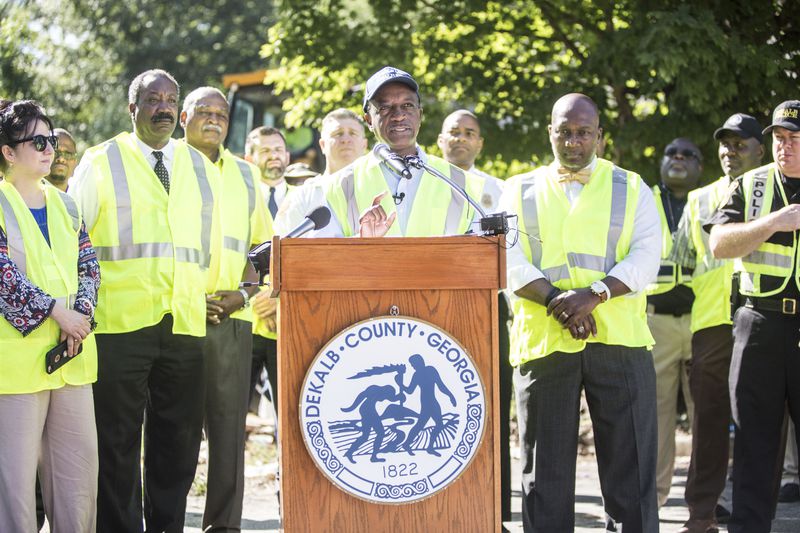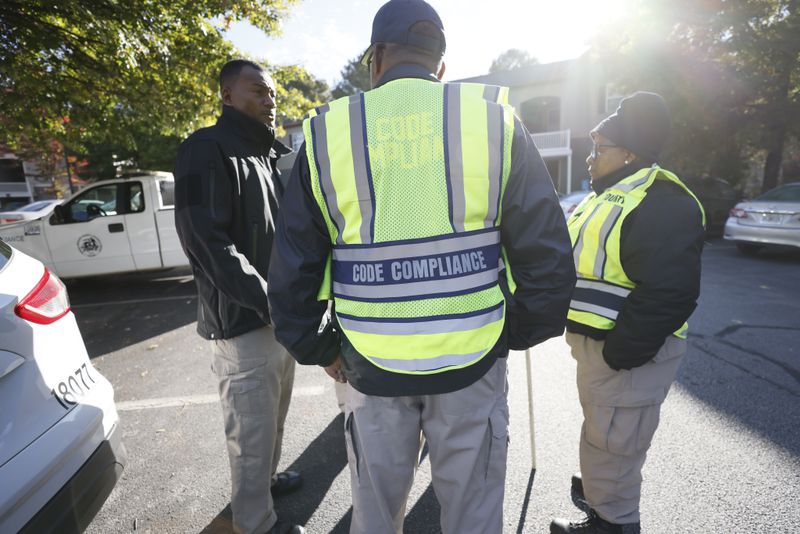DeKalb public records on code enforcement in disarray
DeKalb County says that blight is a priority, and for the past eight years it has had a task force targeting derelict apartment complexes. But public records that might reveal the county’s progress on that front are difficult to obtain, scrambled or misleading, making it hard to hold county officials accountable, The Atlanta Journal-Constitution found.
The county describes its own database of code enforcement cases, provided to the Journal-Constitution months after it was requested, as “inaccurate, unverified” because of mistakes, missteps and deficiencies in its code compliance department’s data collection system.
And a “blight strategy fact sheet” put out by the office of CEO Michael Thurmond this summer paints a misleading picture about efforts to clean up troubled properties.
The fact sheet claimed DeKalb had had 144 multifamily property demolitions since Thurmond took office. But after the Journal-Constitution asked for addresses of those demolitions, it found them to be individual condominiums units, mostly in the Brannon Hill Condominiums complex near Clarkston.
Credit: Chad Rhym
Other records that could shed light on code enforcement are in shambles. Reporters received tens of thousands of pages of disorganized records on apartment inspections tied to business licenses, some with pages misfiled under wrong years, some mislabeled and some with pages duplicated.
Thurmond said in a Journal-Constitution editorial board meeting in July that he would be transparent about the county’s code enforcement problems, but then, through a spokesman, didn’t make himself available for an interview with reporters before deadline. In July, he described the county’s recordkeeping system as “a system that failed,” and said a new one will be brought on line early next year.
“It’s a complete mess,” Thurmond said. “When we tried to go in and get historical data out to see where we are, how many cases we had pending, where they were, we realized to our distress and dismay that we were not capable of doing it. So we are building a new system.”
Transparency is also an issue in tracking code cases through DeKalb magistrate court.
Credit: Miguel Martinez
Usually, records filed in court cases are available on demand to anyone who walks into a courthouse, because of rules established by the Georgia Supreme Court. But the Clerk of Courts for DeKalb County State and Magistrate Courts does not provide a way for the public to view on-demand records of code compliance cases.
Magistrate Clerk Mary Bell said by email that they could be viewed electronically at computer stations inside the Robert T. “Bobby” Burgess Building, next door to the jail.
There turned out to be one computer terminal in the building, and it was inoperable.
Staffers for the clerk’s office said lawyers who need to see code compliance files typically email to ask for them.
While that may comply with the Supreme Court rules, it creates barriers for the public, said Richard T. Griffiths, president emeritus of the Georgia First Amendment Foundation.
“The problem is for citizens who only rarely have encounters with the court, or who are wanting to evaluate incidents involving a neighbor, perhaps, and just wanting to know what’s going on,” Griffiths said. “For them, it becomes much more challenging because they don’t know the levers to pull to be able to get at those records.”

